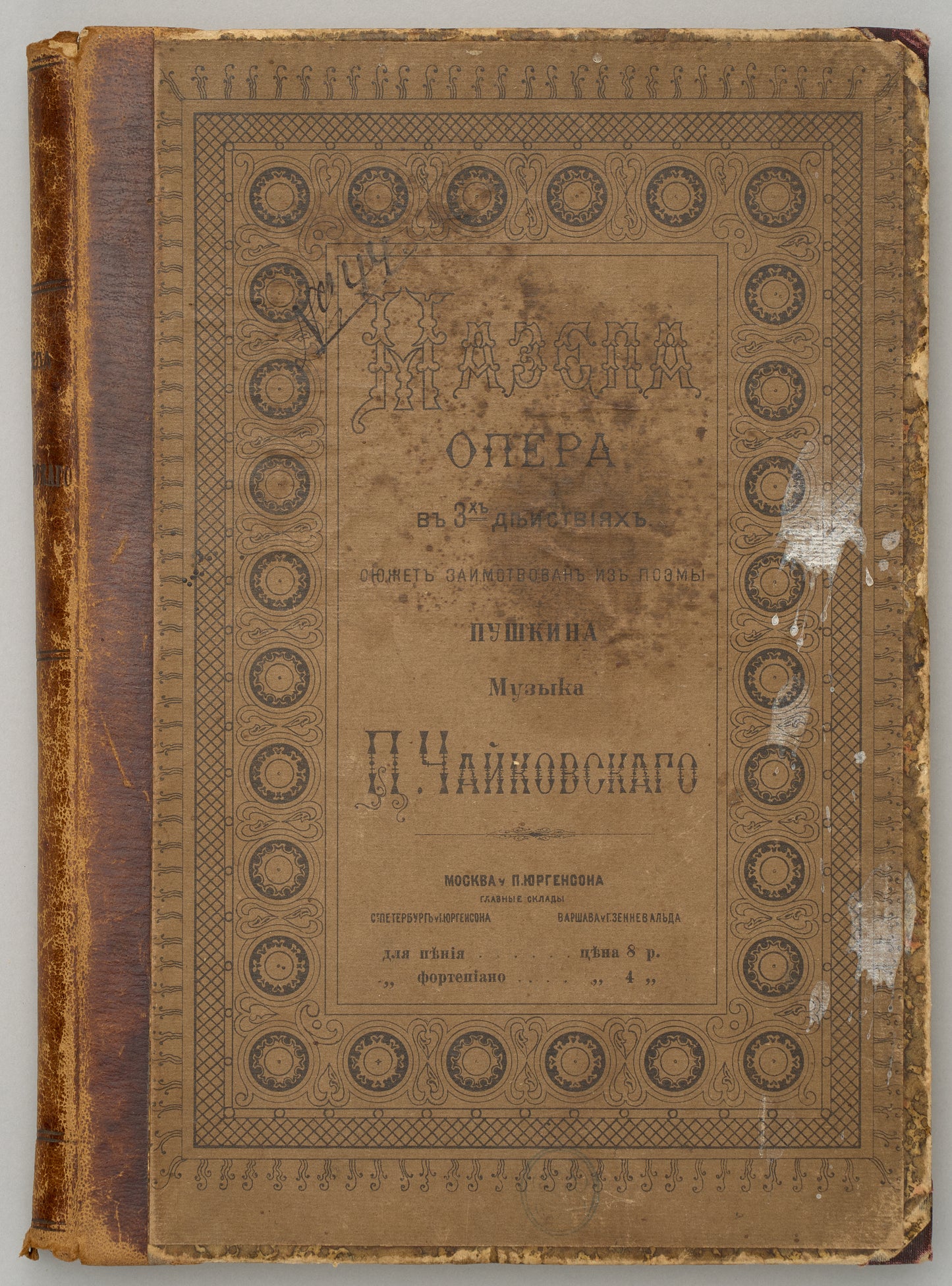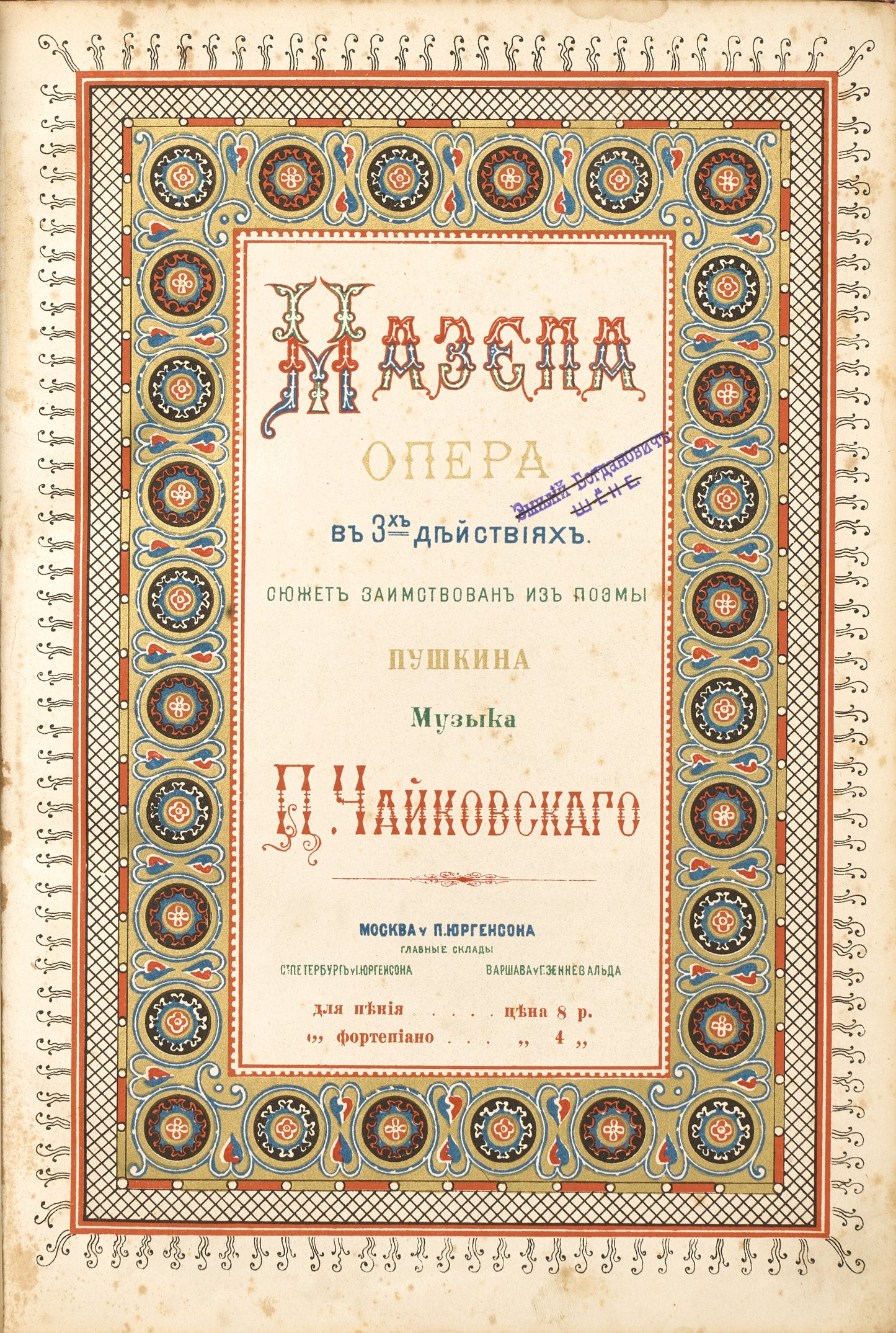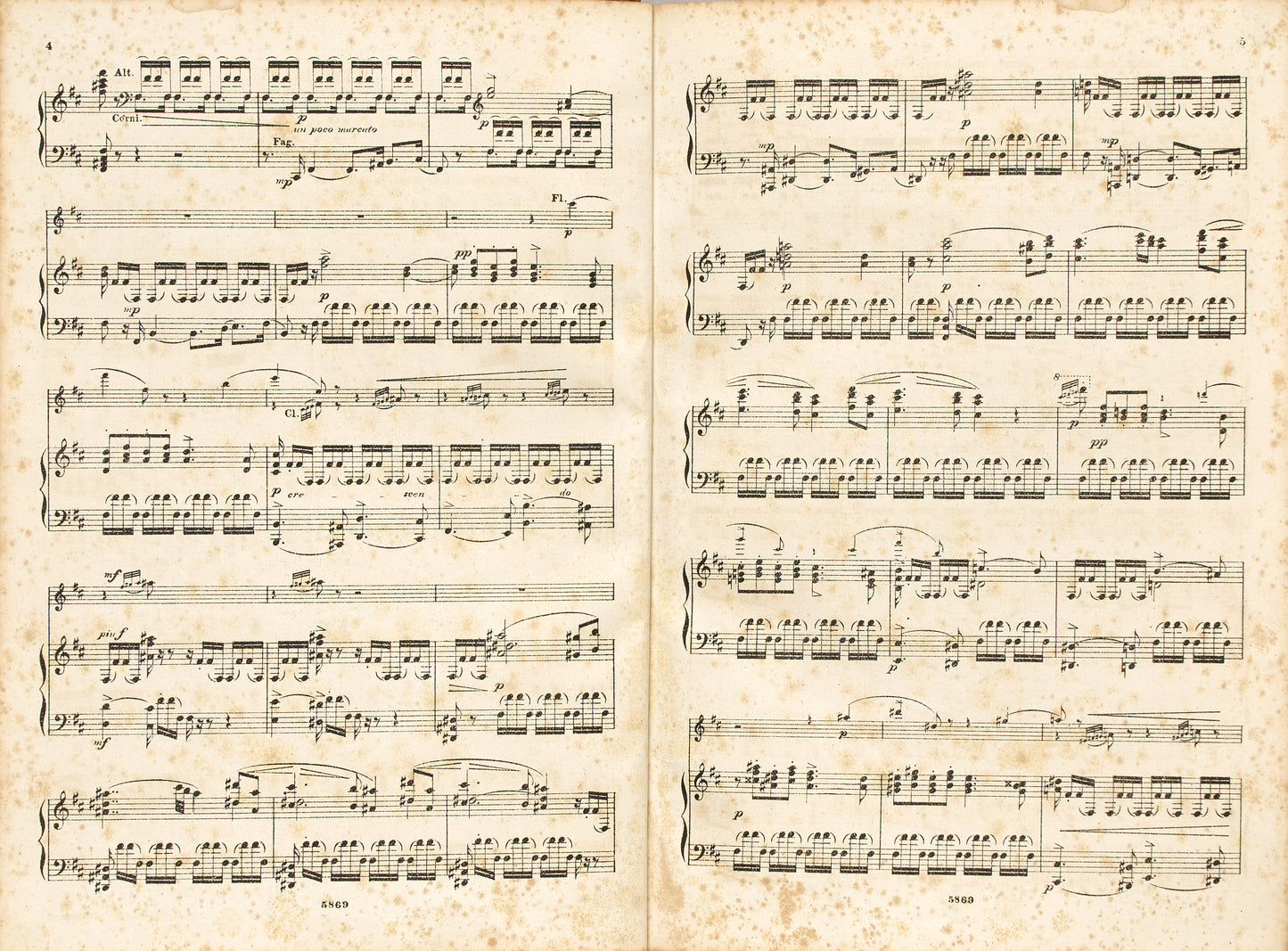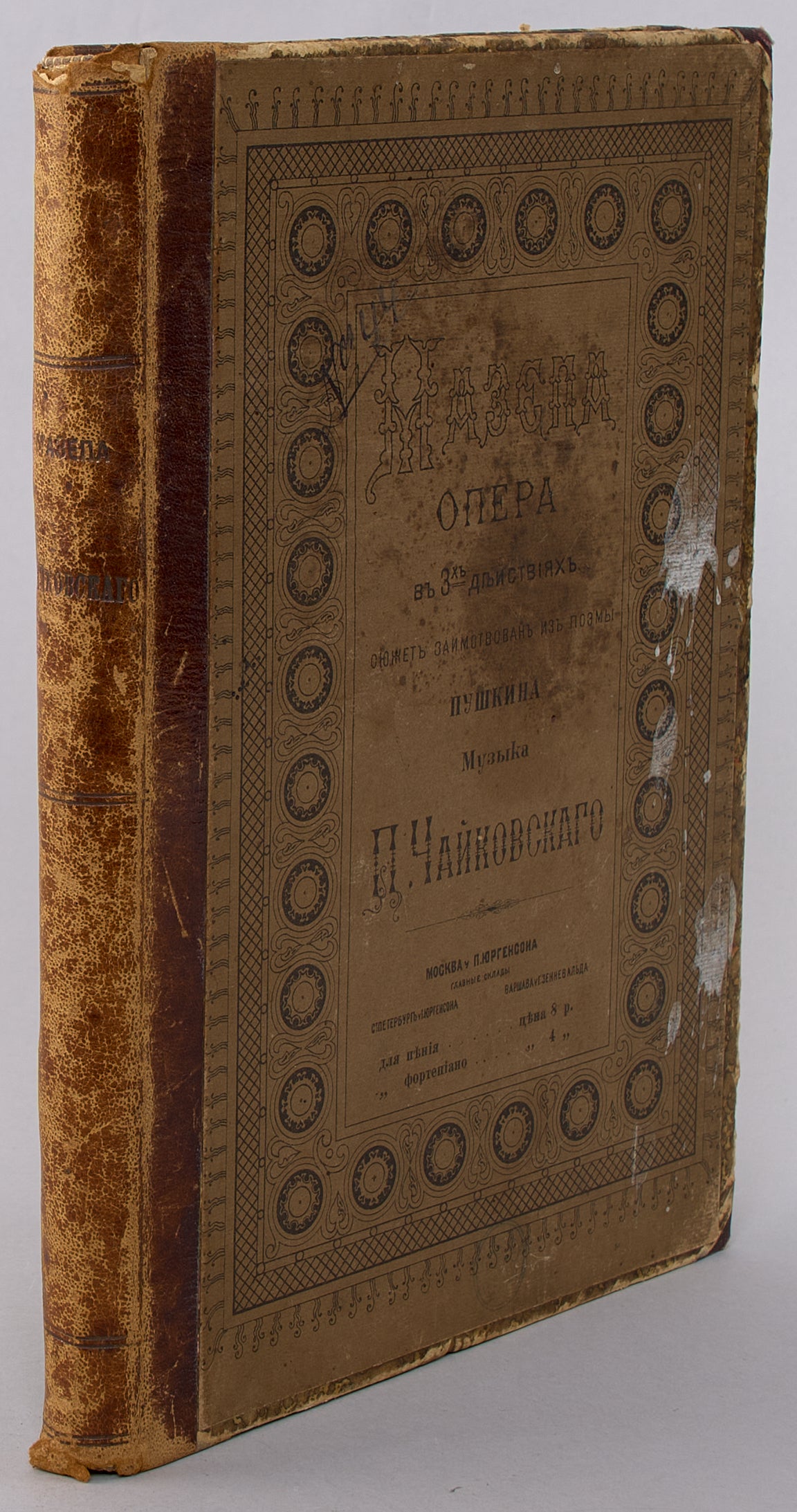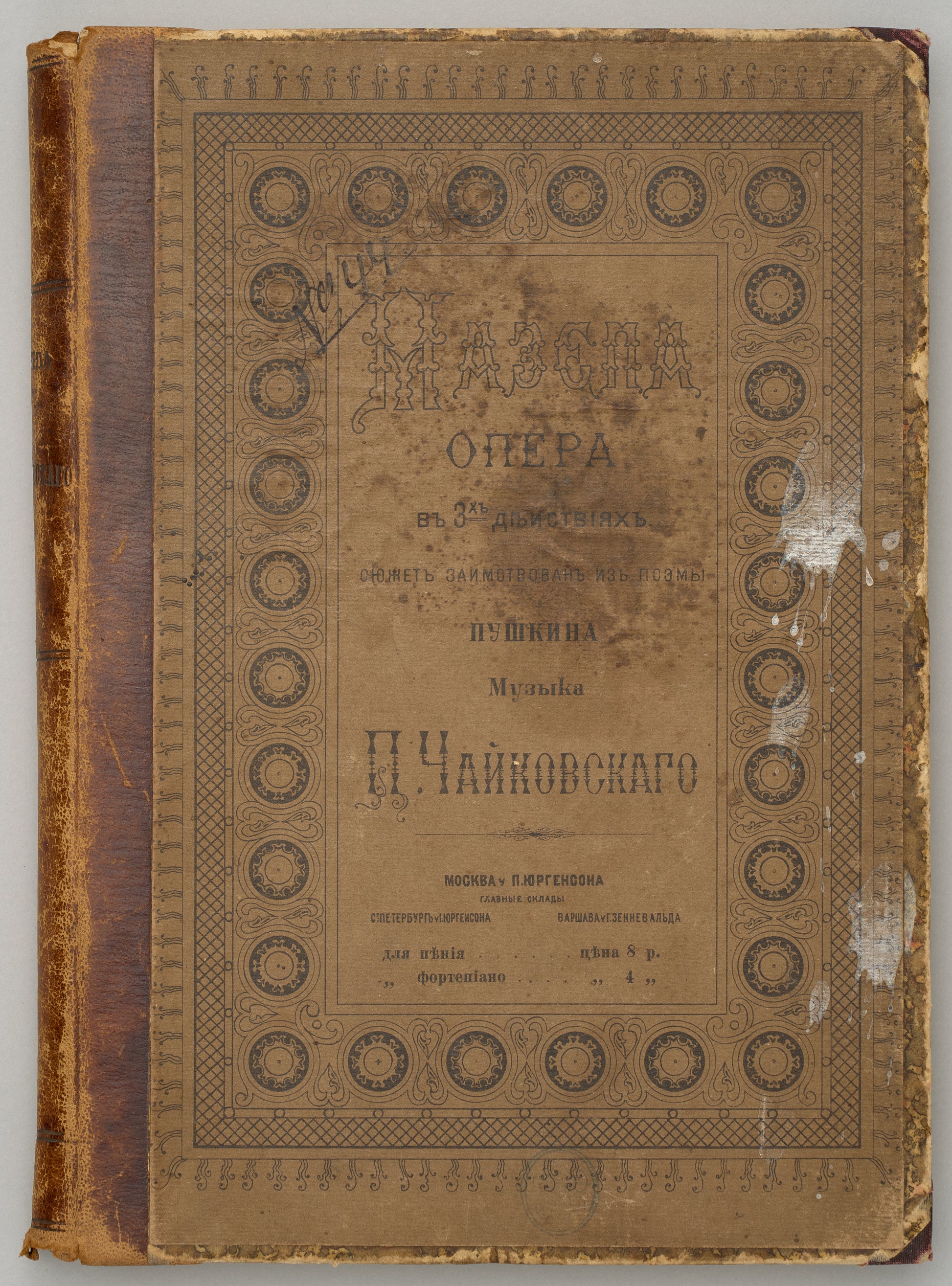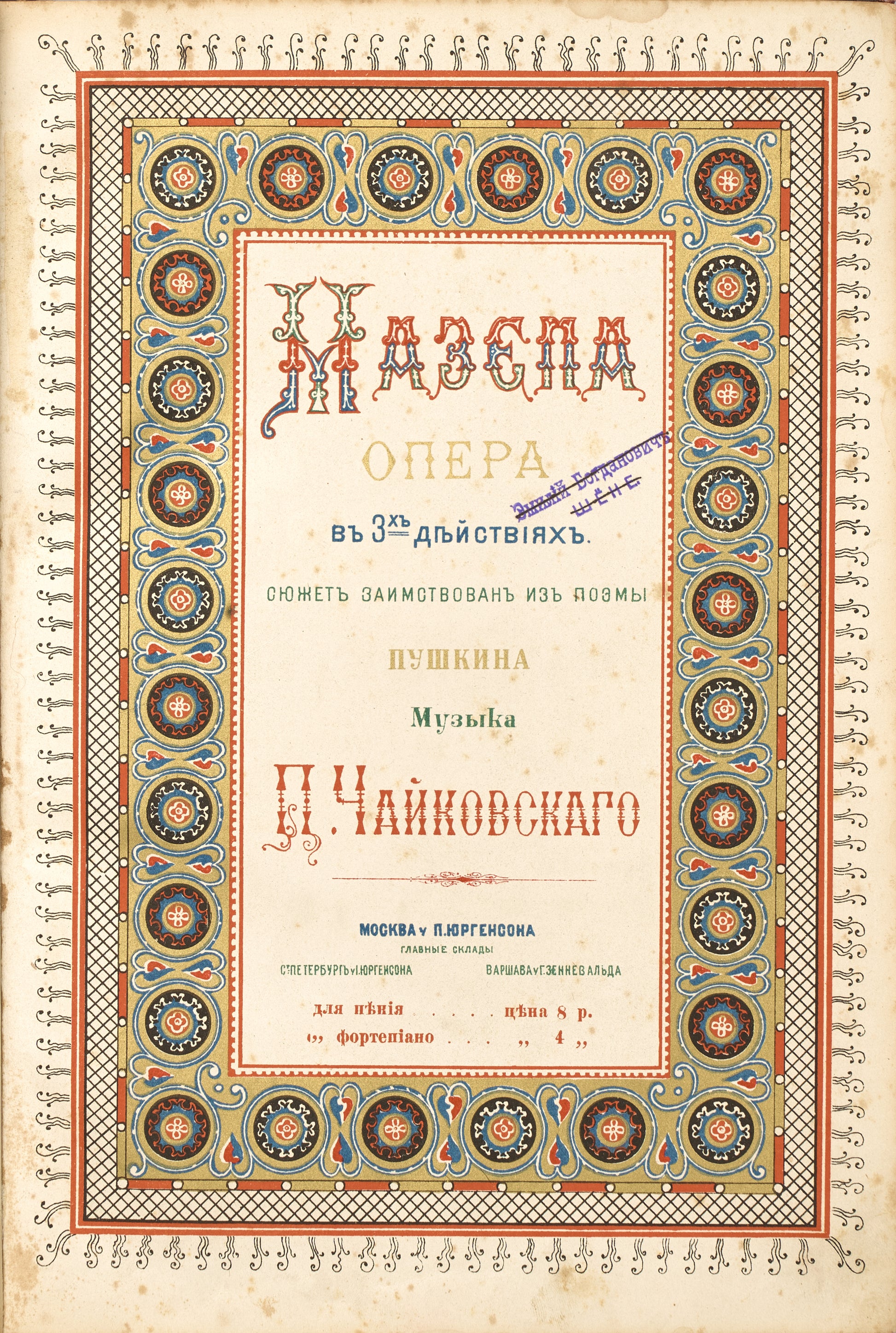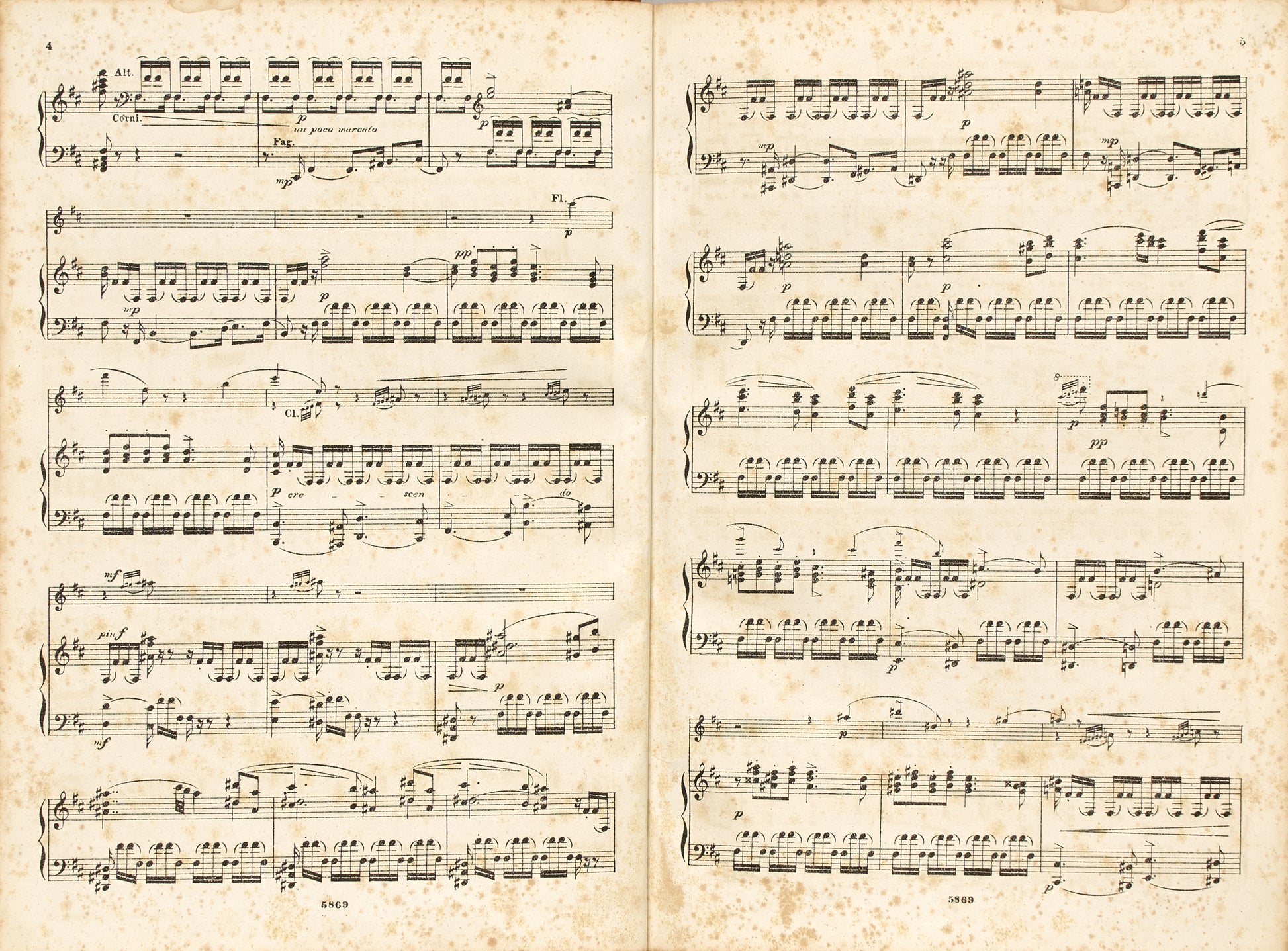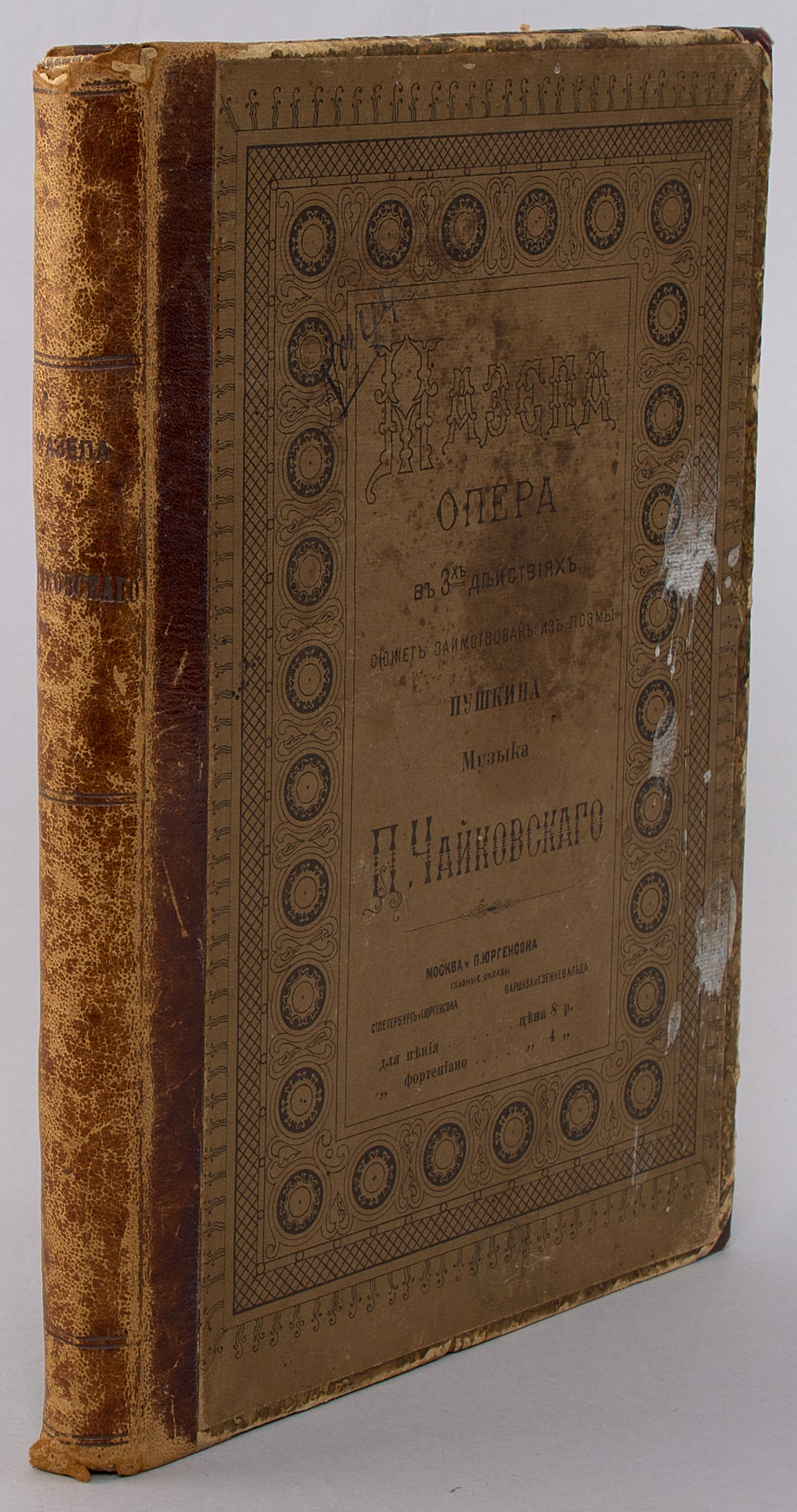Tchaikovsky, Pyotr
Mazeppa: Opera in three acts. Rare printed musical score.
Mazeppa: Opera in three acts. Rare printed musical score.
Couldn't load pickup availability
Tchaikovsky, Pyotr [Mazeppa: Opera in three acts]. Mazepa: Opera v 3-kh deistviiakh.
[Libretto by V. Burenin].
Based on Pushkin’s poem [Poltava].
Moskva, P. Iurgenson, [1899?].
8vo, 168 pp. of music.
In contemporary quarter leather, paper-covered boards. Original front wrapper mounted on front board. Original rear wrapper preserved. Chromolithographic title.
In good condition, lightly spotted, rubbed to spine and extremities, owner’s mark to front cover and front endpaper, front hinge cracked, owner’s stamp to front endpaper and title page, some foxing to pages.
Rare printed musical score.
'Mazeppa' (or 'Mazepa') is a three-act opera composed by Pyotr Tchaikovsky (1840–1893), based on Pushkin’s 'Poltava' and inspired by the cultural legacy of Ivan Mazeppa, the Hetman of the Ukrainian Cossacks, and Vasyl Kochubey, a prosperous Ukrainian nobleman and statesman. The story takes place in Ukraine during the early 18th century. Tchaikovsky worked on the opera between June 1881 and April 1883, and he noted that it was one of the most challenging compositions he had ever undertaken. The opera bears many similarities to Tchaikovsky’s other works, such as 'Eugene Onegin' and 'Romeo and Juliet' (as seen in the duet between Mazeppa and Mariya).
The libretto was written by Victor Burenin (1841–1926), a literary and theatre critic, writer, translator, and satirical poet. It was originally prepared for the 'czar of cellists', composer and director of the St. Petersburg Conservatory Karl Davydov, who worked on it in the middle of the 1870s but eventually abandoned the project.
Tchaikovsky’s premiere of the opera took place on February 15, 1884, at The Bolshoi Theatre in Moscow, followed by a performance four days later at The Mariinsky Theatre in St. Petersburg.
The piano arrangement of the opera was published by Jurgenson in August 1883, the choral parts appeared in July 1883, and the full score of the Hopak (Act I, No. 4) separately in December 1883. This edition is the posthumous edition of vocal-piano reduction. The full score and vocal-piano reduction of 'Mazeppa' were published in volumes 6 (1969) and 38 (1968) of Tchaikovsky’s 'Complete Collected Works'.
It is likely that this copy of 'Mazeppa' was once part of the private collection of German chemist Emilii Shene (Hermann Schöne; 1837/1838–1896), who moved to Russia in 1863 and worked at the Petrovsky Agricultural and Forest Academy.
OCLC locates four copies of this edition: in the University of Miami, the UC Berkeley Library, the New England Conservatory of Music and the Royal Danish Library.
